ATLANTA - CAREER
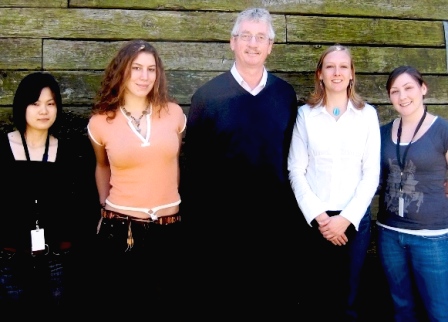 Teaching at the Psychology Department of Emory University, I set up research at Yerkes, the oldest and largest primate research institute in the nation. I became the academic advisor of graduate students recruited through the Psychology Department's Neuroscience & Animal Behavior Program. The students added energy and new ideas to my work. By now, some have earned their Ph. D.'s and moved on to independent careers.
Teaching at the Psychology Department of Emory University, I set up research at Yerkes, the oldest and largest primate research institute in the nation. I became the academic advisor of graduate students recruited through the Psychology Department's Neuroscience & Animal Behavior Program. The students added energy and new ideas to my work. By now, some have earned their Ph. D.'s and moved on to independent careers.
My team has shifted from mostly male in 1993 to mostly female members today, but otherwise the balance of postdocs, technicians, and students has changed little. We hold 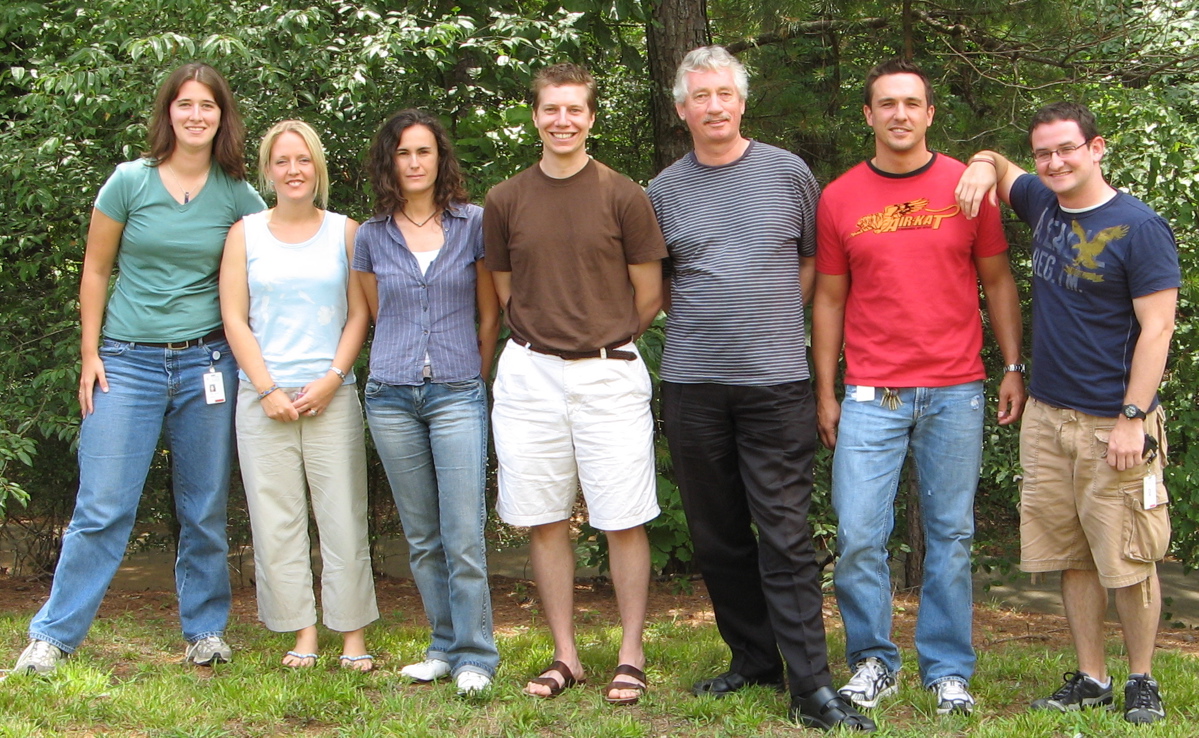 regular lab meetings, which include presentations by students; so-called simian soirees, at which we discuss our projects, and parties.
regular lab meetings, which include presentations by students; so-called simian soirees, at which we discuss our projects, and parties.
Yerkes Director Fred King set me up with a nice new facility for behavioral experiments. The Capuchin Lab is a very active place for graduate and undergraduate students with a socially housed colony of over thirty brown capuchin monkeys. The lab has produced dozens of scientific papers on cooperation, reciprocity, social learning, reconciliation, and so on.
My main objective at Emory was a return to ape work, though. Apart from the observations I had conducted all my life - continued at the Yerkes Field Station - here, too, my work was 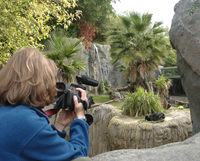 becoming increasingly experimental. The chimps at the Field Station live in large groups, but voluntarily enter a testing building where we present them with puzzle boxes, tools, mirrors, or tasks on a computer screen. At the moment, Vicky Horner and others are running experiments on "cultural transmission". One student has even picked up bonobo work again, visiting the San Diego Zoo two decades after I did.
becoming increasingly experimental. The chimps at the Field Station live in large groups, but voluntarily enter a testing building where we present them with puzzle boxes, tools, mirrors, or tasks on a computer screen. At the moment, Vicky Horner and others are running experiments on "cultural transmission". One student has even picked up bonobo work again, visiting the San Diego Zoo two decades after I did.
My main book during this period was Good Natured (1996), on the origins of morality. This issue was further explored by a student, Jessica Flack, and myself in an article entitled "Any animal whatever .." (720KB pdf). Stephanie Preston and I later produced an almost book-length review of the literature on (human and animal) empathy, which was debated in The Behavioral & Brain Sciences.
My work at Living Links at Yerkes is continuing, as always focused on social behavior and social cognition, mainly on chimpanzees and capuchin monkeys.
ATLANTA - HOME LIFE
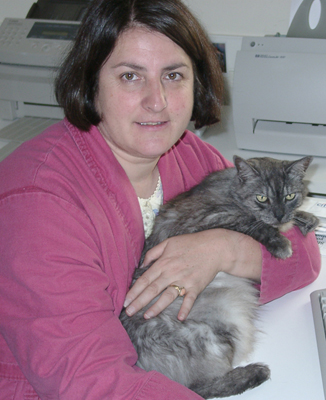 Frans lives in Stone Mountain (Atlanta, Georgia) with his wife Catherine and three cats. They have a spacious home in a forest full of raccoons, opossums, owls, and a great variety of songbirds. Snakes and turtles are occasionally spotted, and the pileated woodpecker is a daily visitor.
Frans lives in Stone Mountain (Atlanta, Georgia) with his wife Catherine and three cats. They have a spacious home in a forest full of raccoons, opossums, owls, and a great variety of songbirds. Snakes and turtles are occasionally spotted, and the pileated woodpecker is a daily visitor.
They enjoy the wildlife, feed the birds, and have two ponds with frogs and goldfish. On summer nights, the forest pulsates with the almost tropical sound of hundreds of tree frogs.

Frans always works on multiple projects at once, and takes little time to relax. He rarely watches television before 10 PM. Once a year, he takes a week's vacation on the Mexican coast. Otherwise he gets his relaxation during trips, which often include some sightseeing. Frans gives around 25 invited lectures and keynotes each year all over the world. Exceptionally, he dresses up for the occasion - his favorite clothing is more casual. Now that Catherine is retiring as a professor at the Georgia Institute of Technology, they will more often travel together.
 Frans' main hobby is obviously his work. But other than that, he likes to cook as does Catherine. His cooking is rather spicy, hers rather French. Frans bakes bread several times per week. Playing the piano is something he has done since he was eight years old, and he still plays classical music as well as bluesy improvisations. With Catherine, he often takes a walk in the neighborhood. Photography is another hobby, reflected in his primate portraits in My Family Album, but also in private and landscape photographs.
Frans' main hobby is obviously his work. But other than that, he likes to cook as does Catherine. His cooking is rather spicy, hers rather French. Frans bakes bread several times per week. Playing the piano is something he has done since he was eight years old, and he still plays classical music as well as bluesy improvisations. With Catherine, he often takes a walk in the neighborhood. Photography is another hobby, reflected in his primate portraits in My Family Album, but also in private and landscape photographs.
The cats get lots of attention. They have a ragdoll-like female named Sofie and two adopted stray cats, a male named Loeke and female named Rose.
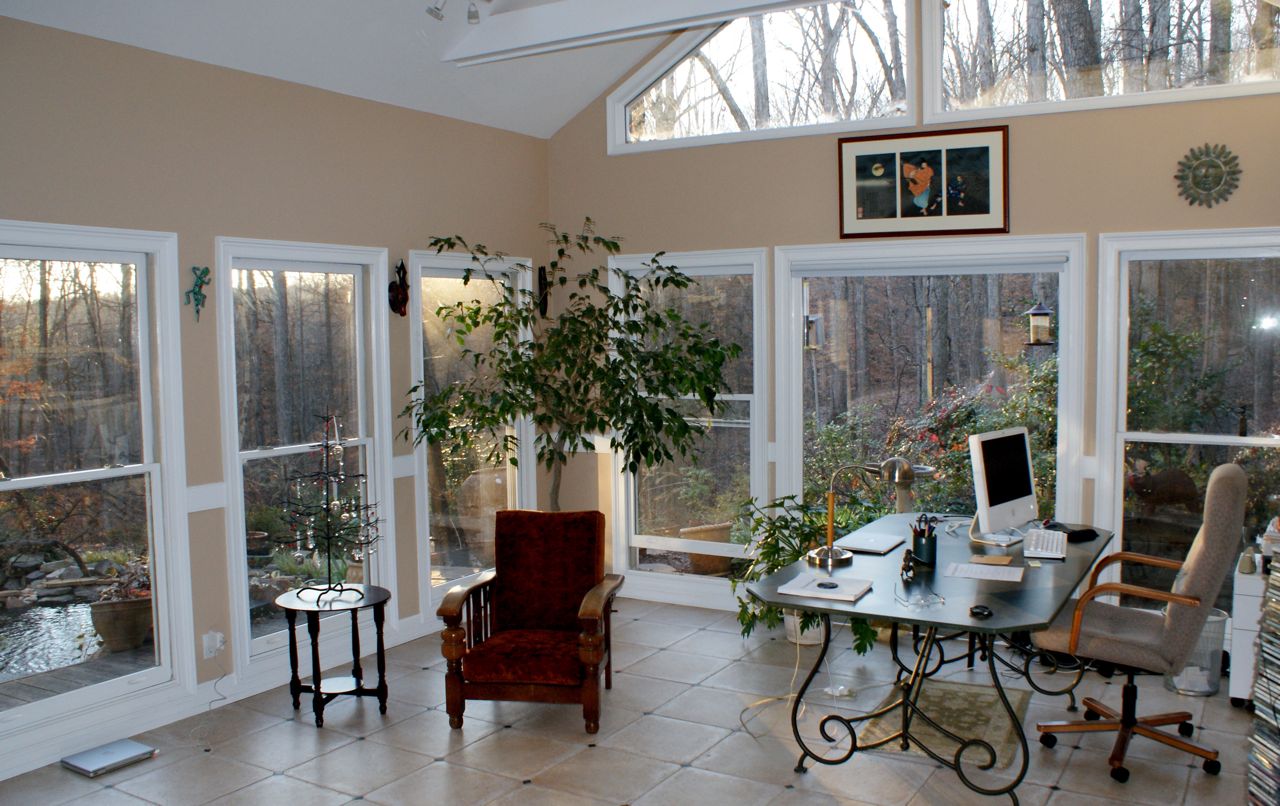
Most importantly, ever since his childhood Frans loves fish. He has one 500-liter (120 gallon) freshwater tank built into the wall of his study and a 600-liter (135 gallon) tank with Mbuna (Laka Malawi cichlids). He maintains several other tanks, including some at work.

Frans and Catherine still have lots of friends and family in the Netherlands and France, whom they visit once or twice per year. They're usually shuttling from one visit to the next, so don't consider these trips vacations, but they're a welcome break from work nonetheless.